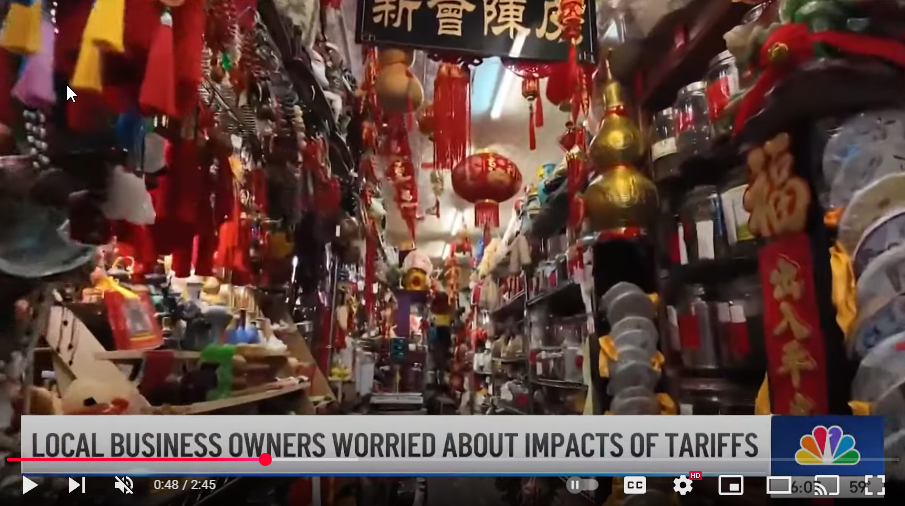Small business owners in Manhattan’s historic Chinatown are sounding the alarm over skyrocketing operating costs, blaming lingering Trump-era tariffs for pricing them to the brink. With a 145% import tax still in place on many Chinese goods, shopkeepers say the cost of essential items—ranging from incense and noodles to traditional herbal medicines—has risen dramatically, threatening their long-term survival.
Retailers throughout the neighborhood say the sharp increase in import duties has upended their supply chains and forced them to absorb costs they can’t pass along to customers. Unlike large corporations that can negotiate bulk pricing or diversify suppliers, Chinatown’s family-run stores and mom-and-pop shops often depend on culturally specific imports with few domestic alternatives.
“We’re not just selling products, we’re keeping our culture alive,” says one merchant who has operated a gift and tea shop for over 20 years. “But these tariffs are crushing us. We can’t afford to raise prices because our community can’t afford to pay more.”
State Assemblymember Grace Lee, who represents the area, says her constituents are experiencing a crisis that’s being overlooked in broader economic discussions. “These are generational businesses that survived COVID, gentrification, and anti-Asian hate,” she says. “Now they’re being pushed to the edge by federal trade policy.”
U.S. Representative Dan Goldman, whose district includes parts of lower Manhattan, echoes the concern. “Small businesses form the economic backbone of communities like Chinatown,” he says. “They operate on thin margins and can’t just pass increased costs on to customers, many of whom are low-income or elderly.”
The tariffs in question were enacted in multiple rounds beginning in 2018 as part of former President Donald Trump’s aggressive stance on trade with China. The policy slapped steep duties on a wide range of goods, including consumer products and raw materials. Though initially framed as a strategic move to level the economic playing field and protect American manufacturers, critics argue the tariffs have disproportionately hurt small retailers and consumers.
According to business owners, some of the hardest-hit products are staple goods frequently purchased in Chinatown: rice noodles, imported herbal remedies, incense sticks, cooking oils, tea blends, and seasonal decorations. Store owners say their suppliers in China have already raised prices due to global inflation and shipping costs, and the additional burden of tariffs makes it almost impossible to remain competitive.
A 2024 report from the U.S. Chamber of Commerce confirms that small businesses in ethnic enclaves like Chinatown are among the most vulnerable to trade policy fluctuations. The report notes that many of these enterprises have neither the scale nor capital to adapt quickly, often relying on long-established supply networks deeply rooted in specific regions of Asia.
Despite repeated calls for tariff reform from local officials, there has been little movement in Washington. The Biden administration has chosen to keep most of the Trump-era tariffs in place amid ongoing strategic tensions with Beijing, including disputes over intellectual property and national security.
Meanwhile, Chinatown business owners say the cumulative effect of tariffs, pandemic recovery, inflation, and rising rents is creating a perfect storm. Many fear a wave of closures could reshape the neighborhood permanently, erasing its cultural identity.
“We’ve been here for decades. We’re not just retailers; we’re part of this city’s history,” says another merchant. “But we need help now. Without relief, we might not be here much longer.”



